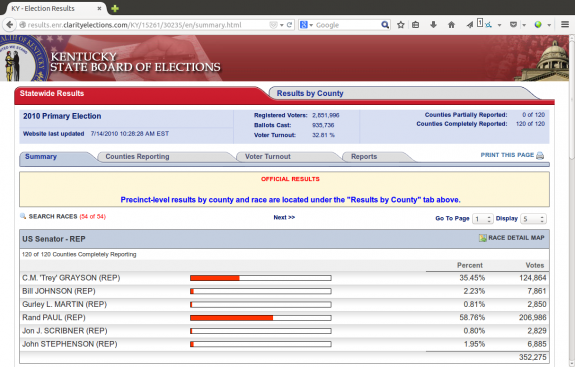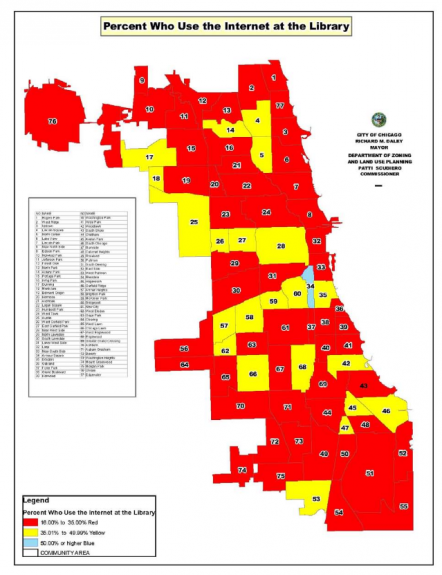I decided to go to the IU library to check out the book The Suburbanization of New York: Is the World’s Greatest City Becoming Just Another Town? (ISBN-13: 978-1-56898-678-4) and found a wealth of other interesting books in the HN80.N5 section on the 7th floor. I also checked out There Goes The Neighborhood (ISBN-10: 0-394-57936-4), a book about the politics of race and class in Chicago neighborhoods, and passed on Praciticing Community (ISBN-10: 0-292-73118-3), a book about similar dynamics, but in Cincinatti, though it also looked good.
I heard an interesting recording of a Michael Parenti talk on Alternative Radio on WFHB on Monday, 2007-08-20 that was kind of all over the place, but mostly about how identity politics are exploited to divide people who are marginalized by race, gender, or sexual orientation. He also suggested that the division of power in this country often finds people with very different ethnic, gender, sexual, or other cultural identities on the same side of that power divide.
I read this article by Dave Zirin, author of What’s My Name Fool?: Sports and Resistance in the U.S., Welcome to the Terrordome, and other books about sports and politics. Zirin writes about the difficulties in sending copies of his books to a Texas death row inmate because
“It contains material that a reasonable person would construe as written solely for the purpose of communicating information designed to achieve the breakdown of prisons through offender disruption such as strikes or riots.â€
The offending content, according to the TXDOC, included quotations such as this from baseball great Jackie Robinson:
“I felt tortured and I tried to just play ball and ignore the insults. But it was really getting to me. … For one wild and rage-crazed moment I thought, ‘To hell with Mr. Rickey’s “noble experiment.†… To hell with the image of the patient black freak I was supposed to create.’ I could throw down my bat, stride over to that Phillies dugout, grab one of those white sons of [expletive] and smash his teeth in with my despised black fist. Then I could walk away from it all.â€
I use del.icio.us for managing my bookmarks. Often, I want to access my del.icio.us bookmarks through my browser instead of having to visit the del.icio.us site. The del.icio.us Bookmarks Firefox add-on lets me do just that.
Roy F. Baumeister’s talk, Is There Anything Good About Men? is really interesting. It talks about the different ways that culture have used men and women to achieve its ends. It also talks about how a fundamental difference between men and women is that men favor wider, shallower relationships and women prefer closer, more intimate relationships and how this has driven the different cultural realms that are inhabited disproportionally by men and women. At the base of this, claims Baumeister, is the evolutionary reality that far more women reproduce than men. The wider, shallower, relationships or more risk-taking activities favored by men, in general, facilitates the differentiation that will allow some men to reproduce.
On a somewhat related note, this is a program that my friend is working with. The program is trying to organize
Men of Strength (MOST) Clubs in DC and other communities. A friend who works with the Middleway House, a Bloomington shelter for women and children affected by rape and family violence says that young men who stay in the shelter really lack a community of other males to critically examine their ideas of identity and masculinity and to model ideas of gender or relationships that differ from the violence that they’ve experienced. These clubs seem like a rare example of something that might begin to provide this support/education. The clubs are described as:
 The
The
Men of Strength (MOST) Club has provided young men in Washington, DC and California high schools and colleges with a safe and supportive haven to connect with male peers while exploring masculinity and male strength.
Exposing young men to healthier, nonviolent models/visions of manhood, the MOST Club challenges members to define their own definition of masculinity and to translate their learning into community leadership, progressive action, and social change.
MOST CLUB AIMS TO:
- Provide young men with a safe, supportive space in which to connect with male peers through exploring notions of masculinity and male strength.
- Promote an understanding of ways that traditional masculinity contributes to sexual assault and other forms of men’s violence, perpetuates gender inequity, and compromises the health of men and women.
- Expose young men to healthier, nonviolent models/visions of manhood.
- Build young men’s capacity to become peer leaders and allies with women in promoting gender equality and preventing men’s violence.
I have Debian Etch with KDE installed as my workstation at work, and I had a hard time figuring out how to make Iceweasel (Debian’s all-free software version of Firefox) the default browser instead of Konqueror. Turns out it was as easy as
$ update-alternatives –config x-www-browser


 The
The